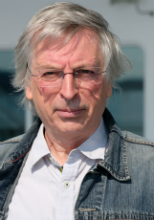Dr. Rob Walker

R.B.J. (Rob) Walker has been teaching in the UVic Department of Political Science since 1980. He works primarily as a political theorist but has long resisted theoretical traditions privileging states and individuals, preferring to treat “the modern international” as the site of the most challenging political problems of our age. At the same time he has been highly sceptical of both the scholarly credentials and practical capacities of prevailing forms of international relations theory, which he reads mainly as symptoms of the limits of the modern political imagination. Rather than apply individualistic and statist theorizations to international phenomena, he has sought to examine the profoundly contradictory character of relations between individuals, states and state-system, as well as of the relation between all three of these scalar accounts of modern subjectivity and “the world” from which they have been distinguished in order to constitute distinctions between claims to humanity in general and to politically qualified citizenships in particular. In this context that he has worked both with and against figures like Machiavelli, Mercator, Hobbes, Kant, Clausewitz, Marx, Weber, Cassirer, Foucault and Derrida.
While initially wanting to build on his doctoral work on the general relation between modern accounts of authority in the sciences and in politics, he was gradually drawn to some of the early proponents of both globalization and postcolonial theory and then, in the manner of immanent rather than transcendental critique, to engage more systematically with the peculiar Anglo-American academic fields of international relations and security studies. He eventually became best known as one of the key voices in a small eruption of “critical theorists” in the late 1980s and early 1990s who managed to push thinking about the international slightly beyond the ritualized confrontation between realists and idealists while also challenging prevailing dogmas about socio-scientific method. From the turn of this century, he worked closely with European sociologists trying to understand the changing relation between liberty and security (and the transformation of boundary practices more generally) that were already in process before the attacks of 9/11. Since then he has been thinking more about the broader historical and geographical contexts in which we struggle to make sense of transformative conditions that clearly exceed the analytical capacities of all scholarly traditions and disciplinary dogmas.
Beyond UVic, he is also Professor of International Relations at PUC-Rio de Janeiro. From 2000 to 2008 he was Professor of International Relations at Keele University in the UK. He has also spent extensive periods at Princeton University, Australian National University and the Centre for the Study of Developing Societies in Delhi, and had shorter visiting appointments elsewhere. Over the past decade he has been a regular participant in the influential Summer Schools on critical analysis in Gregynog, Wales, and on international political sociology in Rio de Janeiro. He was the Editor of the journal Alternatives: Global, Local, Political for over twenty years, as well as the founding co-editor of International Political Sociology. His most recent book is Out of Line: Essays on the politics of boundaries and the limits of modern politics (2016), which includes a general overview of his prior work as well as a biographically focused interview. He is currently wrestling with a short book on what is at stake in referring to an international, or to imagine alternatives to it.